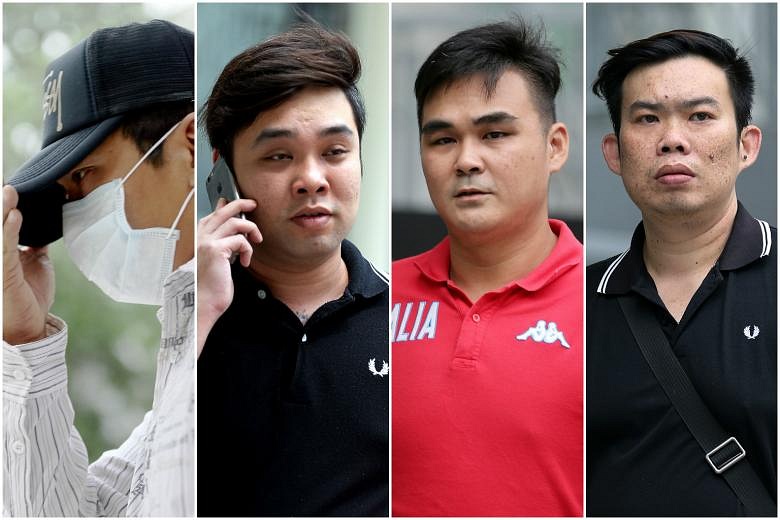SINGAPORE - Four salesmen from a mobile phone shop in Sim Lim Square who engaged in a conspiracy to cheat walk-in customers were jailed between four and 14 months on Wednesday (Oct 14).
Koh Guan Seng, 38, Kam Kok Keong, 31, Lim Hong Ching, 34, and Kelvin Lim Zhi Wei, 32 were then working as freelance sales executives for Jover Chew, owner of the now-defunct Mobile Air mobile phone shop which duped $16,149 from its unsuspecting customers between April 15 and Oct 27 last year.
The case against Chew, 33, will be heard again on Oct 28.
Mobile Air came under the spotlight in October last year after it refunded $1,010 to a customer in coins.
The following month, a Vietnamese tourist was caught on a viral video kneeling in the shop and begging for a refund.
Koh, who pleaded guilty to six of 15 charges, was given 14 months' jail; Kam was jailed 11 months for four of nine charges; Lim Hong Ching was sentenced to six months in prison while Kelvin Lim was given four months.
The court heard that Chew manned the shop personally, controlled the pricing of the mobile devices and gave detailed instructions to his salesmen on how to conduct sales.
The salesman would offer a mobile device to a customer at an attractive price, which would be lower than the "cost price".
When the customer indicated that he wished to buy the product at the quoted price, the salesman would ask the customer to make full payment.
Upon payment, the customer would not be given the device but asked to sign an invoice which reflected the agreed price. However, once it was signed, additional items and amounts would be added to it. Such items could include a "warranty" or an "in-house package".
The salesman would then alter the total price on the invoice and demand the extra amounts from the customer.
This method of collecting payment in two tranches was devised by Chew, the court heard.
The salesman would use the signed invoice, which now reflected the new items as basis for refusing to hand over the product unless the victim paid the additional amounts.

